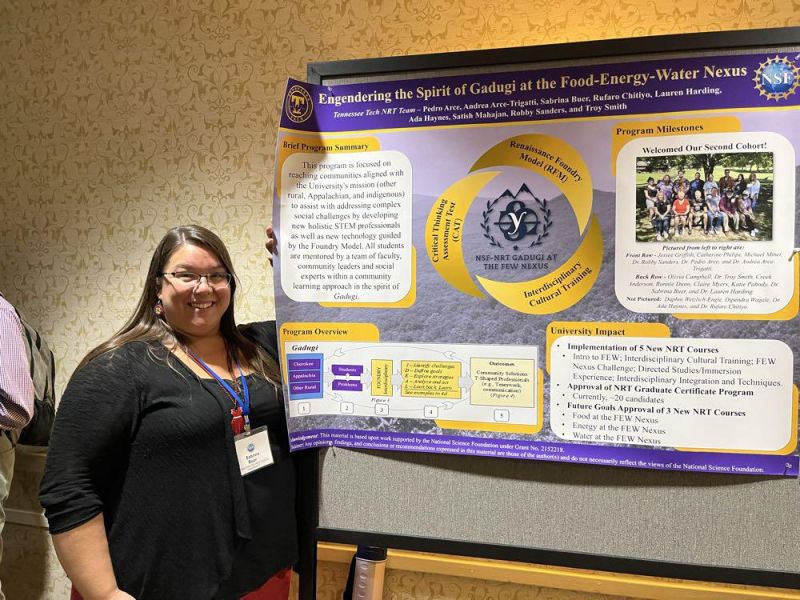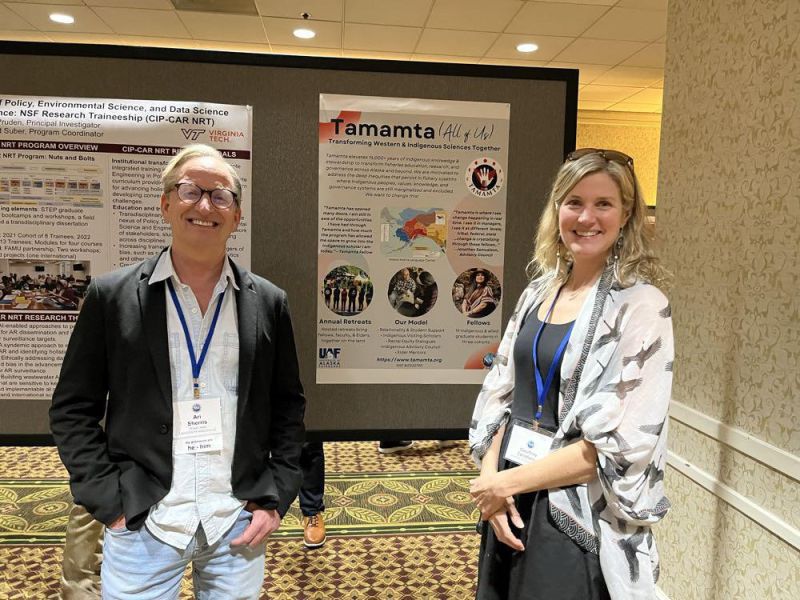Across the country and beyond, scientists are waking up to the fact that Indigenous knowledge is essential to addressing society's greatest social and environmental challenges. Yet traditional western approaches to scientific research still fail to adequately engage Indigenous communities, and Indigenous people are vastly underrepresented in STEM.
Pathways to empower Indigenous STEM voices: Community-driven initiatives
Across North America, Indigenous-led organizations and grassroots initiatives are supporting Indigenous students in their pursuit of STEM opportunities. Programs such as the American Indian Science and Engineering Society, IndigiGenius and the Two-Eyed Seeing model encourage Indigenous students to explore science, technology, engineering and mathematics topics and issues through lenses that honor their heritage and culture. These programs empower students and educators to create innovative solutions grounded in a comprehensive, culturally inclusive understanding of the world by utilizing the strengths and tools of Indigenous knowledge and Western science.
NSF's commitment to Indigenous participation in STEM
The U.S. National Science Foundation is working to further that empowerment by investing in initiatives that provide opportunities to emerging Indigenous researchers, integrating Indigenous wisdom into STEM learning and deepening engagement with Indigenous communities. Through the NSF Research Traineeship program, NSF is supporting a wide range of projects that are transforming STEM graduate education to uplift the work of Indigenous scientists and honor Indigenous communities.
Below are three traineeship initiatives that support increased representation of Indigenous students in graduate STEM education. These projects exemplify innovative methods for enhancing Indigenous participation and success in STEM graduate education. By creating culturally relevant and supportive environments, embedding place-based learning and prioritizing public engagement, these initiatives contribute to a more inclusive STEM landscape that values and integrates Indigenous perspectives.
Tamamta: Uplifting Indigenous knowledge in marine sciences - University of Alaska-Fairbanks
While Alaska Natives represent nearly 20% of the state's population, there is a near complete absence of Indigenous representation in the management of the state's ecological resources. The University of Alaska's NSF Research Traineeship program called Tamamta — a Sugpiaq word meaning "all of us" — was launched to change that paradigm in the critical field of fisheries and marine science. The traineeship's team is focused on broadening STEM graduate education to engage more Indigenous students while adapting curricula to embrace Indigenous knowledge, representation, and values. Trainees engage in cross-cultural, cross-disciplinary work "to address pressing questions of equity and sustainability of life and relations in Alaska," bridging Indigenous and Western knowledge systems to reveal innovative solutions.
Convergent Arctic Research Perspectives and Education - University of New Hampshire
The devastating effects of climate change are most evident in the Arctic, where shifts in seasonality — the timing of cultural, biological, physical and chemical events — are raising profound challenges for communities and entire ecosystems. The University of New Hampshire launched the Convergent Arctic Research Perspectives and Education program to train a new generation of scientists prepared to understand and confront the complex socio-ecological impacts of changing seasonality in the region, with a focus on co-producing knowledge with Arctic Indigenous communities and local stakeholders. The program "will prepare the trainees to pursue academic and non-academic careers to address grand challenges posed by a changing climate and the cascading impacts on society."
Rivers, Watersheds and Communities - Washington State University
Indigenous people are the original caretakers of our rivers and waterways, which are vital to the health of human communities and complex ecosystems. The University of Washington launched an innovative NSF Research Traineeship program to address increasing threats to the Columbia River Basin by supporting a workforce "capable of integrating scientific information, public policy, and the knowledge and concerns of affected populations." Through the project, which aims to provide equitable, multi-scale decision-making opportunities towards human and ecosystem health, trainees engage deeply with Indigenous communities to co-create water quality solutions, drawing on scientific research and traditional ecological knowledge.


